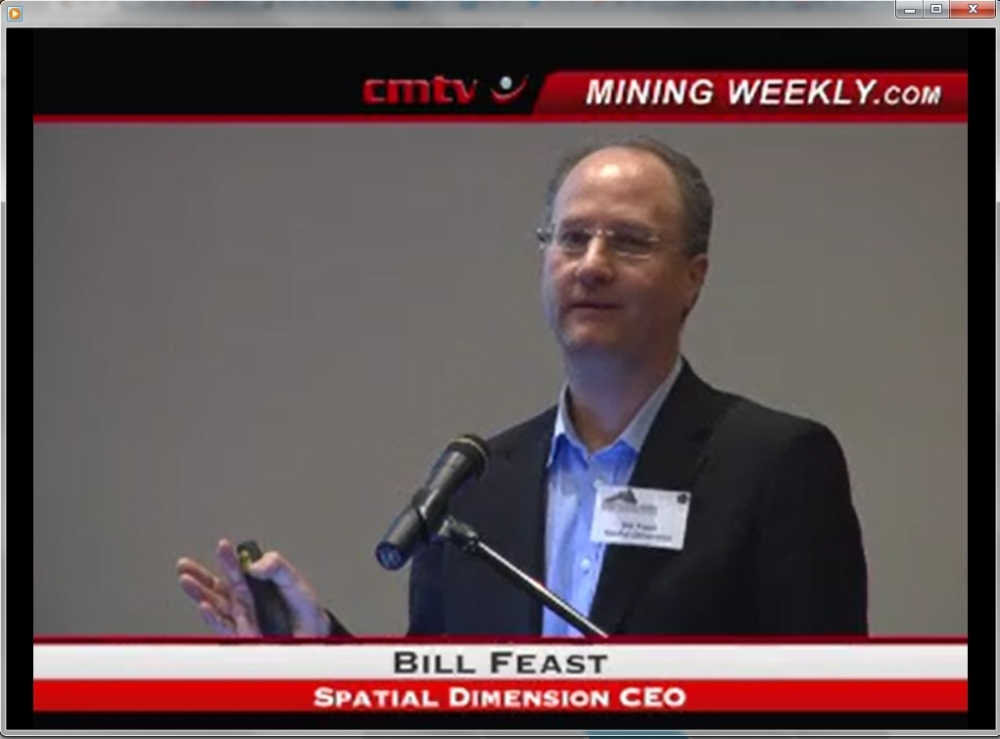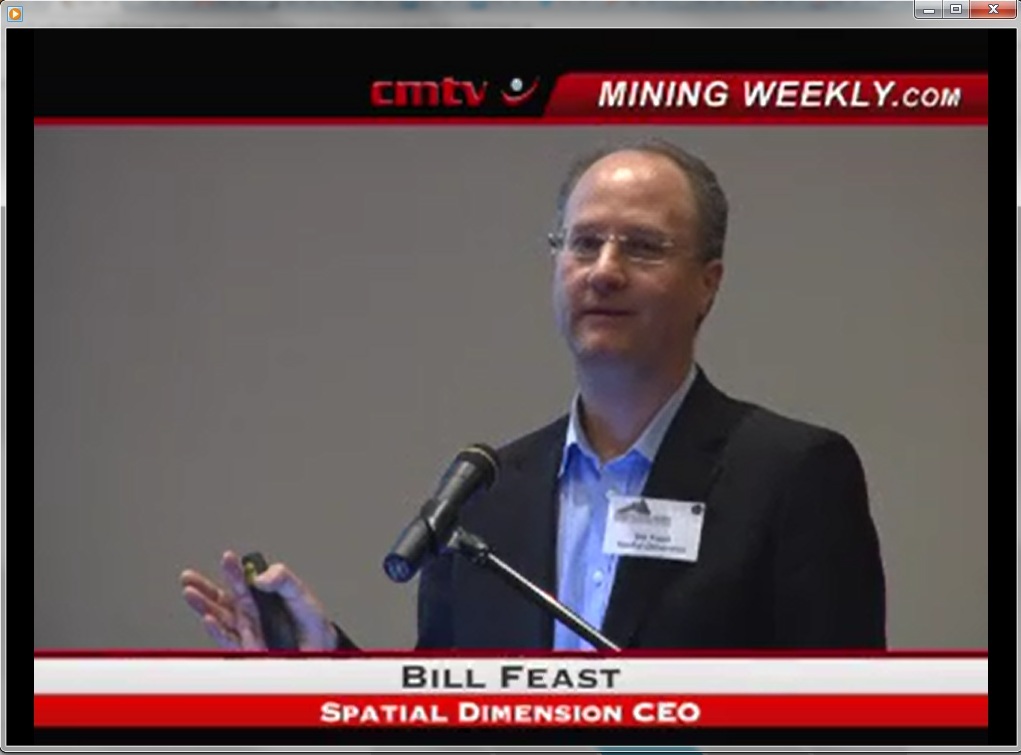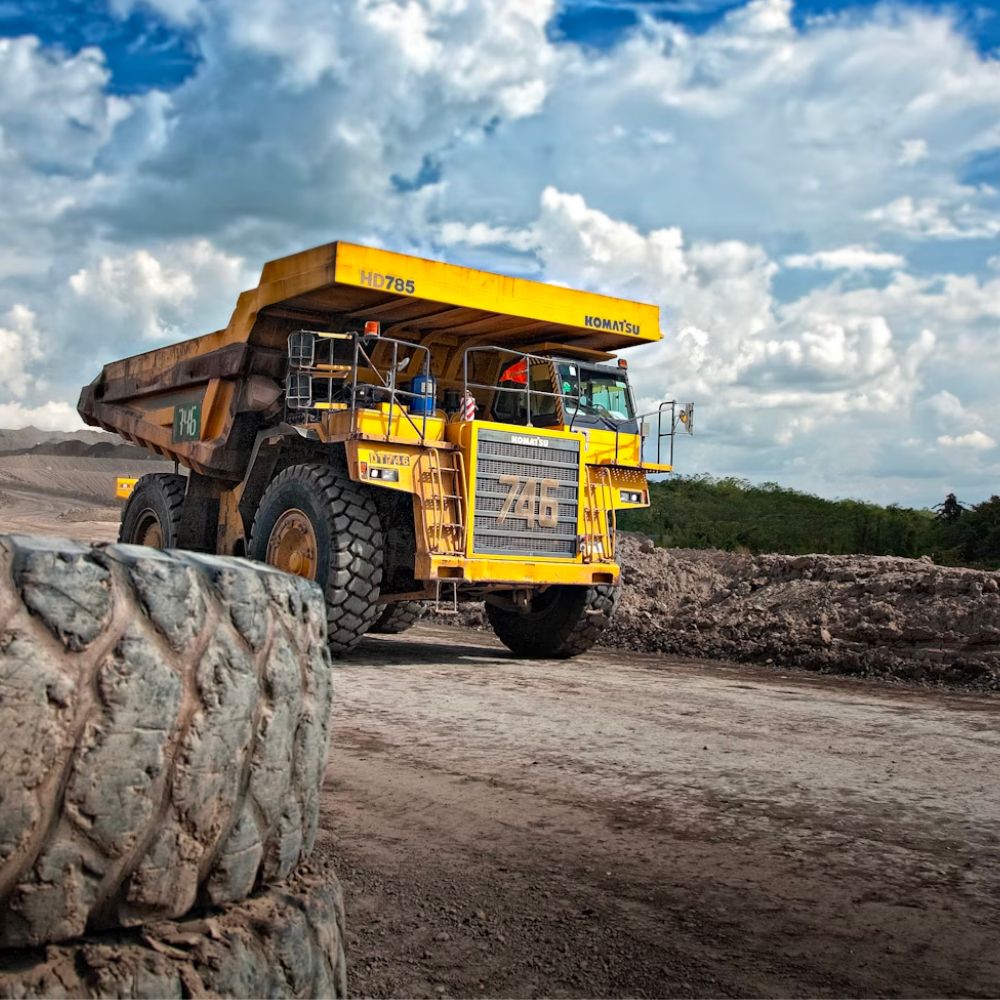While mining cadastre systems do not operate in a vacuum, free from the political, regulatory and operational realities of a country, and while these realities would impact on the system, a well-implemented mining cadastre could make a difference in challenging environments, Spatial Dimension CEO Bill Feast said on recently.
Speaking at the Streamlining Mining Permit Approvals Africa conference, hosted by Resourceful Events, in Johannesburg, he pointed out that, one size did not fit all when it came to mining cadastres, noting that specific circumstances had to be taken into account when designing these systems .
“A poorly implemented mining cadastre system could complicate an already complex regulatory environment,” he said, adding that this was currently the case in South Africa, where the mining cadastre system impacted negatively on investment into the country’s mining sector.

View part of the presentation on YouTube.
For a mining cadastre to be successful, it had to achieve a balance between protecting and guaranteeing the rights of the State and the titleholders, he said.
“To achieve this balance, it is essential for the cadastre to ensure transparency in cadastral management for cadastral procedures and information.
“All the criteria and parameters to be considered and evaluated in the process of granting a licence also have to be objective and not subject to interpretation, and the decisions pertaining to the legal and regulatory framework have to be nondiscretionary,” he said.
Feast further added that there were various challenges with regard to the implementation of a mining cadastre system that had to be taken into account to ensure that the system functioned optimally.
These challenges included the political will in a specific country, vested interests by officials in a nontransparent policy environment, ongoing regulatory changes and a large number of touch points in the mining permit or right approval process.
Feast added that Botswana was much more attractive to investors as it had a “one-stop-shop” approach to granting mining permits or licences.
“In Botswana, you can apply for all the necessary approvals at one office, whereas in South Africa, there are too many different government departments involved in the process,” he said.
Meanwhile, the availability and quality of historical data and the lack of infrastructure also posed a challenge in some countries.
Further, a mining cadastre system in Africa would also be faced with the challenge of managing the interests of large-scale and artisanal miners, as well as that of local and foreign investors, he added.
However, Feast concluded that despite the challenges, a mining cadastre system could successfully be developed for African countries, adding that Zambia would soon have an online transactional mining system in line with those being used in countries such as Canada and Australia.
Article by Leandi Kolver, Mining Weekly.
www.miningweekly.com
FlexiCadastre is now part of the Landfolio software suite.








